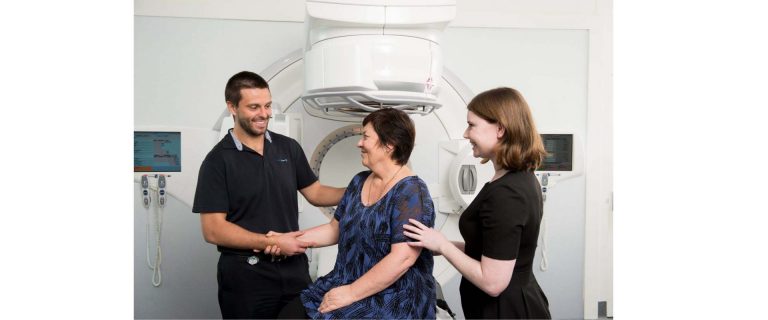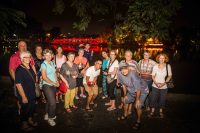Over three decades, TROG Cancer Research has facilitated hundreds of clinical trials, with over 14,500 cancer patients participating across Australia, New Zealand and globally. The results of these clinical trials have helped to improve the outcomes and quality of life for thousands more cancer patients nationally and globally.
Over that time, the prognosis for cancer patients has improved considerably: in the 1980s the cancer survival rate was less than 50 per cent. Today for some cancers the survival rate is as high as 90 per cent.
Providing hope to people with all cancers through one treatment – radiation therapy – TROG Cancer Research has become one of the largest clinical trial groups in Australia and New Zealand working with hospitals, universities, cancer centres and the wider community.
Medical professionals from around the world approach TROG Cancer Research with new ideas on how radiation therapy can be used to improve the quality of life and treatment of a specific cancer disease.
CEO, Susan Goode, said that over 30 years TROG Cancer Research has provided hope to people with all cancers through one treatment – radiation therapy.
“We’ve come a long way since our humble beginnings in 1989 when members of seven radiation therapy centres across Australia and New Zealand formed a clinical trial group to advance the study of cancers that could be treated with radiation therapy,” Susan said. “One in two cancer patients will benefit from radiation therapy, so the research we conduct is vital.”
“By collaborating and bringing to life these concepts in a managed environment, we’ve been able to achieve great advancements in cancer patient care and outcomes that have changed the way patients are treated worldwide.”
One of those patients who has benefited from radiation therapy is Julie McCrossin, a well-known radio broadcaster and journalist. In 2013, Julie was diagnosed with stage 4 oropharyngeal cancer (throat cancer).
“Being told that you have throat cancer is a very frightening experience,” said Julie. “I asked the doctor how many stages of cancer there are, and he replied four. I then knew that my cancer was very serious.”
Julie had radiation treatment every day for a month, combined with chemotherapy once a week. It took Julie a long time to recover from her cancer, both physically and emotionally.
“I’m so grateful that I had radiation therapy. Without this treatment I would have had to have surgery to remove the cancer, which meant I would also have lost the ability to speak. For anyone this would be a confronting situation, but because of my career and my love of communication, it really hit home.
“When I received radiation therapy as my primary treatment for stage 4 cancer in my tonsils, tongue and throat, I was lucky to benefit from the research that had preceded my diagnosis. My treatment was highly targeted. Advances in treatment are occurring all the time.”
While Julie’s treatment was successful, Susan said there’s still a lot of work to be done to improve outcomes for different cancer diseases.
“Radiation therapy remains an important curative treatment option, however ongoing research is still needed to ensure we can progress the ways we use this advanced technology to outsmart the many strains of the disease,” Susan said.
“Delivering world-class cancer research is expensive and there is a significant gap between the cost of our clinical trials and the government funding available to them.”
TROG Cancer Research relies on the support of the community to bring their vital research to life.
Leaving a gift in your will can help make life changing and life-saving cancer research possible!
If you would like to make a bequest, please visit trog.com.au/leave-a-gift-in-will.





